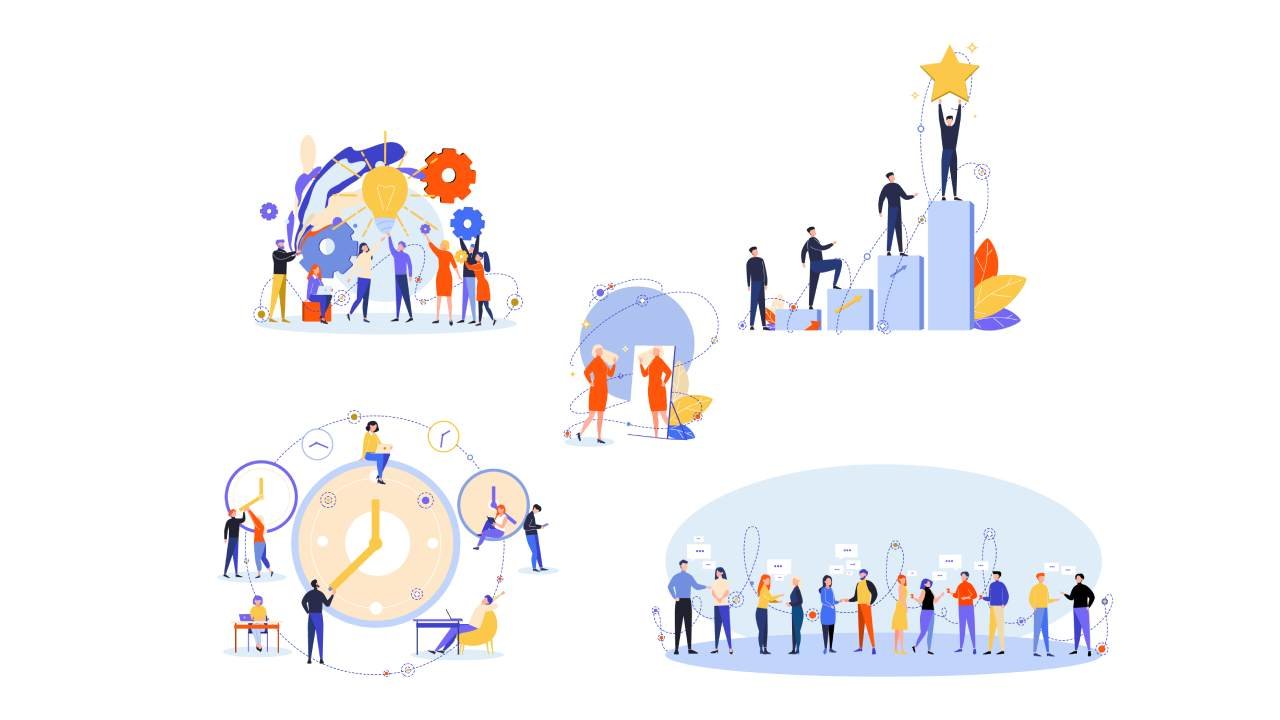In an era defined by digital transformation and rapidly evolving job roles, technical expertise alone no longer defines success. Instead, soft skills—like communication, emotional intelligence, adaptability, and problem-solving—have emerged as critical differentiators for high-performing teams and leaders. Yet, one fundamental question persists: how do we effectively go about measuring soft skills?
Until recently, soft skills were considered too “intangible” to quantify. But with the right frameworks and digital tools, organizations can now assess, develop, and scale these capabilities in meaningful, data-driven ways.
In this article, we’ll explore why measuring soft skills is essential for modern organizations, how to do it correctly, and what tools can support the journey.
Why Soft Skills Matter More Than Ever
Soft skills are no longer “nice to have”—they are mission-critical. According to LinkedIn’s Global Talent Trends report, 92% of talent professionals say that soft skills are equally or more important than hard skills when hiring. And yet, only a fraction of companies have a structured method to assess them.
Key reasons soft skills are rising in importance:
- Remote and hybrid work require strong communication and collaboration.
- AI and automation are taking over repetitive tasks, placing humans in more strategic and relational roles.
- Leadership and culture depend on empathy, listening, and influence—not just decision-making power.
- Team performance relies heavily on trust, feedback, and conflict resolution.
Simply put, soft skills are the foundation of resilient, future-ready teams.
The Challenge: Why Soft Skills Are Hard to Measure
Unlike hard skills, which can be verified via certifications or performance tests, soft skills are nuanced and often context-dependent. Here’s what makes them tough to track:
- Subjectivity: Traditional evaluations rely on personal opinions or observations, which can be biased or inconsistent.
- Lack of clear benchmarks: What does “great communication” mean? It varies across roles and organizations.
- Limited historical data: Most organizations don’t collect structured data on behavior or interpersonal traits.
But challenges aside, the business case for measuring soft skills is stronger than ever. Companies that find effective ways to assess and develop these abilities are more likely to build stronger teams, improve retention, and identify future leaders early on.
A Modern Approach to Measuring Soft Skills
So how can organizations start measuring soft skills with consistency, fairness, and impact?
1. Behavior-Based Assessments
These tools evaluate how employees respond to specific situations or scenarios that reflect real work dynamics. This includes simulations, role-playing, and situational judgment tests.
2. 360-Degree Feedback
Gathering feedback from peers, managers, direct reports, and even clients gives a well-rounded view of how a person shows up in the workplace.
3. Digital Diagnostic Tools
Advanced platforms use data analytics, psychometrics, and AI to offer scalable and objective measurement of soft skills. For example, tools offered by Kienbaum KAG enable precise measuring soft skills across diverse teams and leadership levels.
4. Self-Assessment + Coaching
Combining self-reflection with guided development can increase self-awareness—an essential soft skill itself.
Why You Should Digitize Your Soft Skills Strategy
Manual evaluations no longer scale in complex, hybrid organizations. Digital tools offer a more robust, repeatable, and unbiased solution for measuring soft skills at scale. Here’s why going digital is a game-changer:
- Data-Driven Decisions: Objective measurements enable better hiring, development, and succession planning.
- Consistency: Digital platforms standardize the evaluation process across departments and geographies.
- Actionable Insights: Identify skill gaps, development needs, and top performers quickly.
- Scalability: Roll out assessments across hundreds or thousands of employees efficiently.
Kienbaum KAG’s measuring soft skills tools exemplify this transformation by offering advanced analytics, competency models, and dynamic reporting—enabling HR leaders to align talent with strategy.
What Skills Should You Measure?
The specific soft skills to measure will vary by role and industry, but some core competencies consistently appear across the board:
- Communication – verbal, written, and cross-cultural
- Emotional intelligence – empathy, self-regulation, and social awareness
- Adaptability – agility in the face of change and ambiguity
- Collaboration – teamwork and knowledge-sharing
- Critical thinking – analysis, judgment, and creativity
- Accountability – ownership and integrity in performance
- Conflict resolution – navigating tension constructively
Many organizations develop tailored soft skill frameworks linked to role levels—from individual contributors to executive leaders.
Business Impact: Why This Investment Pays Off
Studies show that employees with strong soft skills significantly outperform their peers in areas such as leadership effectiveness, client satisfaction, and project success. By systematically measuring soft skills, companies unlock the potential to:
- Improve leadership pipelines
- Enhance team dynamics
- Increase employee engagement
- Reduce turnover and conflict
- Strengthen organizational culture
In fact, a Boston College study found that soft skills training boosts productivity and retention by over 12%.
Case Study: From Gut Instinct to Structured Insights
A global tech company struggled with uneven team performance and poor communication across its remote teams. Although the organization had technical excellence, they lacked a common language or method to evaluate and grow soft skills.
By partnering with Kienbaum and leveraging their digital tools for measuring soft skills, the company implemented a scalable framework for assessing communication, collaboration, and emotional intelligence. Within six months:
- Cross-functional collaboration scores improved by 27%
- Employee engagement rose by 18%
- Team leaders reported clearer expectations and better coaching conversations
Getting Started: Best Practices
If you’re ready to begin measuring soft skills in your organization, follow these steps:
- Define what “soft skills” mean for your company – Tailor based on business goals and role requirements.
- Choose the right tools – Avoid one-size-fits-all; opt for customizable platforms that integrate with your HR systems.
- Communicate the “why” – Let employees know that this is about development, not judgment.
- Train your managers – Equip leaders with the skills to interpret results and coach effectively.
- Use data to act – Don’t just measure—embed insights into L&D, hiring, and performance cycles.
Final Thoughts: Measuring What Matters
The old adage “what gets measured, gets managed” has never been more relevant. While soft skills were once seen as elusive, today’s digital tools offer unprecedented clarity and opportunity. Organizations that take measuring soft skills seriously will gain a competitive edge—not just in performance, but in attracting and retaining the best people.
It’s time to stop treating soft skills as the “soft stuff.” They’re the hard currency of modern business success.
Related Reads
- Custom Fitness App Development: Build the Fitness App Your Users Actually Want
- Guide to Home Cleaning Services in Richmond Hill
- Why Do the Shoulders of the Elderly Become Stiff and Swollen? Know the Reason and Solution from the Shoulder Specialist in Ranchi
- Transmission of Shares: A Complete Guide by Share Claimers
- Why is it Advantageous to Rent a Car in Dubai Compared to Using Public Transport?
- What Are House Cleaning Services and How Do They Work Perfectly?



